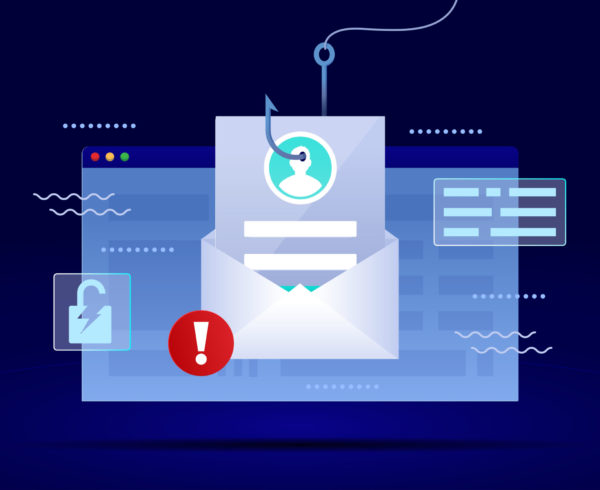Everyone has heard of hacking, but not many will know of its less-sinister counterpart, ethical hacking. Rather than the image of an evil villain breaking into important software in a dingy basement, imagine someone working alongside important companies and training them in techniques to prevent malicious attacks to their system.
Ethical hacking is quickly becoming one of the world’s most important job roles, and demand for it is only growing. The work of a certified hacker is that of risk management, social engineering, and security enforcement. There are several different types of ethical hacking, and each serves its own unique purpose.
Increasingly, hacking is becoming a respectable and coveted industry, with new certifications and training courses becoming available, and more and more companies requesting hackers to join their ranks.
To find out more about ethical hacking, how to become a hacker, and why it is so important in today’s world, keep reading.
What is an ethical hacker?
An ethical hacker, otherwise known as a white-hat hacker, is someone who specialises in computer security. Typically, they will have an acute understanding of penetration testing and other testing methods in order to make sure that a business’ computer system is secure against potential dangerous hackers.
Ethical hackers work for professional organisations by hacking into their computer systems to test their defences. If any weaknesses or faults are detected in a client’s system, then a hacker will make it known and recommend preventative measures that should be taken.
If the hacker doesn’t find anything wrong, then the client can rest assured that their private information is protected.
Ethical hackers all follow similar guidelines when it comes to executing their work. Initially, they will learn as much as possible about their client’s company; this is often when they will first encounter weaknesses that can be exploited.
After this, the actual hacking commences. The hackers use the vulnerabilities found from learning about their target to gain unauthorized access to their client’s information systems.
Once the penetration has been performed, the white-hat hacker can write up and present their findings, and from there advise on what steps a company can take to protect their systems better against malicious actions.
Why is information security important?
Information security has never been more important than now, in our globalised world where we can all be connected at the touch of a button. Even though technology has brought us innovation and opportunity, it is also not without its risks.
Internal conflicts are on the rise, and gone are the days of conventional warfare. These days, terrorist organisations and fringe groups take full advantage of the internet, funding cybercriminals to hack into computer systems.
The impact of unethical hacking should not be underestimated; doing so can compromise the security of entire nations, leak sensitive information, block original users from accessing content, and much more. The need for information security also comes from a practical standpoint.
If a system is disrupted, it can take up a lot of valuable time, thereby reducing productivity and ensuring business continuity.
Information security is vital to the integrity and safety of countless organisations and governments the world over, as it reduces the risk of data breaches and attacks to IT software, protects network systems against attackers from outsiders, and provides peace of mind by keeping sensitive information safe.
What qualifications and training do ethical hackers need?
There is no specific education course that will qualify you to be an ethical hacker. However, you do need extensive knowledge of various IT systems and software. On top of this, you should understand the vulnerabilities of said systems and how they could be exploited by cybercriminals.
Having said that, there are formal qualifications available in subjects related to ethical hacking that can prepare you for the role, such as the EC-Council Certified Ethical Hacker (CEH) Certification.
Before landing a role as a hacker with any company, you also have to gain the approval of the Communications-Electronics Security Group.
The EC-Council is the most respectable organisation within hacking out there. Its certification is offered in over 87 countries around the world and offers training which is held with high regard by many employers.
There are other valuable qualifications that can help to make you stand out as an ethical hacker, such as a Masters degree in a related field like cyber-security, or a CREST certification.
The training does not come easy, nor do the qualifications, but is in place to ensure that penetration testing is only carried out by the most competent of hackers.
Can cyber-criminals become ethical hackers?
It is not unheard of for cyber-criminals or black-hat hackers to switch over and become ethical hackers. In fact, it makes them incredibly suited for the job.
Many ethical hackers gain their unique skills and knowledge through malicious cyber-hacking. The ethical hacking industry started out as a response to criminal hacking, so it only makes sense that some cross from the dark side and share their expertise, for a price.
However, with the rise in popularity of information security studies, more and more individuals are becoming certified ethical hackers with no prior experience in criminal cyber-hacking.
Many of the qualifications on offer for hackers would prevent those with a criminal or unethical past to partake, meaning that fewer have the opportunity in the first place.
Whether or not cyber-criminals can become ethical hackers also depends on the company or organisation looking to hire.
Some will not have an issue with putting to use the knowledge that black-hat hackers have, whilst others will be wary of what someone with an ability of recreation or criminal hacking skills is capable of.
What kinds of ethical hacker job roles are available?
There are all sorts of different roles available under the field of ethical hacking.
Usually, when job-hunting, you will not see many adverts for ‘ethical hacker’. Instead, you would be more likely to find positions for ‘penetration tester’, or ‘network security advisor’. Each of these jobs will be performing similar tasks involving hacking into a company’s cyber-security systems.
Ethical hacker roles are sometimes labelled as ‘red team’ roles, which are differentiated from ‘blue team’ roles.
Within a business, the red team’s responsibility is to hack into the computer system to try and target vulnerabilities or point out flaws. A blue team, meanwhile, will be trying to fight against hackers to protect the systems.
How much does a certified ethical hacker make?
Ethical hacking can be a pretty lucrative business if you work your way up the ladder and become known in the world of network security.
Salaries can range from £25,000 to £100,000, depending on position type and level of experience. Alternatively, an ethical hacking freelancer could earn up to £500 a day working for different organisations.
Due to the rising relevancy of information security, the demand for ethical hackers outweighs the supply, meaning there is an opportunity to earn a lot of money.
You can earn even more as a hacker by holding certifications or training qualifications, as you are able to showcase to prospective employers that you have a certain level of expertise and commitment and that you are specialised in the realm of network security.
What’s more, if you find a niche within the hacking industry, exploit it. Becoming a specialist in a sub-field of penetration testing will only serve to benefit you financially and professionally. Companies will pay a lot of money for their security, and if you can provide something unique that they need, there is no limit to what they will do for it.
Every day we hear about a new bug or malicious software that threatens our cyber-security. Businesses are paranoid and understand the urgency behind protecting their sensitive information.
This environment means that ethical hackers are thriving: their positions have never been more important, and this means that money is being funnelled into the industry.
How to become an ethical hacker
If you are interested in becoming an ethical hacker but aren’t sure how to go about it, look no further. There are lots of routes you can go down to become a certified ethical hacker.
One of the most obvious methods is to contact a cyber-security organisation, such as CREST, and enquire about any training or courses they may provide for budding ethical hackers. Along the same vein as this, you could research university courses related to hacking or information security and apply for these.
Another way of becoming an ethical hacker is to get a position in a related subject, and then build your way up to penetration testing over time. For example, a lot of hackers use their previous experience as auditors or security professionals as a means to land a role in ethical hacking.
As with several other industries, networking is a crucial piece of the puzzle when it comes to becoming an ethical hacker. Attend as many conferences as you can, join online forums, apply for jobs, internships, apprenticeships, and get yourself out there.
All it takes is one person to see the potential in you for you to become the next best certified ethical hacker.
The best thing you can do if you want to enter the ethical hacking industry is to grow as knowledgeable as possible in your chosen field. What most employers are looking for is expertise and somebody that they can trust with sensitive information. If you can prove that this is you, then you are in with a good chance of getting a job.
Is there an ethical hacking course available?
There are numerous ethical hacking courses available for an aspiring penetration tester. However, it is important to note that certifications are not a prerequisite to working in the ethical hacking industry.
Perhaps the most common course is the Ethical Hacker CEH (EC-Council Certified Ethical Hacking Certification) programme.
Through this, you will learn how to gain access and maintain access to sensitive files, as well as analyse any vulnerabilities that have been identified. There are also additional modules that can be learnt as a part of this certification scheme, including Malware Threats, Types of Hacking, and Sniffing.
Other ethical hacking courses out there include the SysAdmin, Networking, and Security Institute GPEN certification, the Offensive Security Certified Professional course, and the CREST qualification. Each has its own benefits, and each equips you with the real-world skills to be a certified ethical hacker.
Ethical Hacking FAQs
What is the meaning of ethical hacking?
To be in ethical hacking means to be involved in the process of hacking into a company’s security systems, with their permission, in order to identify and exploit vulnerabilities with the purpose of resolving these before a malicious attacker gains access.
Ethical hackers are also known as white-hat hackers, which means they hack into a network or system officially as a means to offer solutions and use their skills to reinforce a system’s defences.
In contrast, a black-hat hacker is someone who uses their knowledge for unethical purposes such as selfish financial gain or to expose sensitive information.
Ethical hacking is sometimes used as an umbrella term, as there are multiple different methods used and types of hacking undertaken. Some of the most common professional hacking services include breaking into a wireless network, a web server, or a web application.
Is ethical hacking legal?
Even though it may seem unusual at first glance for someone gaining unauthorized access to sensitive files to be acting within the law, ethical hacking is completely legal.
While there are similarities between ethical hacking and the tasks performed by black-hat hackers, there is a fundamental difference in that ethical hackers have been hired and trusted by an organisation to use their skills and tools for good.
What’s more, criminal hackers operate with malicious intentions such as to expose or exploit private information, disable a network, or block users from accessing their own system. Ethical hackers work alongside, not against, a company to help them be better protected against future attacks.
There are instances, however, when ethical hacking is not carried out legally. One should carry certification as well as practical skills to be a hacker and must be officially hired by a company before working to gain access to their software. Failing to meet all of the prerequisites of ethical hacking would make the practice unlawful.
What are the 3 types of hackers?
The three main types of hackers are as follows: white-hat, black-hat, and grey-hat. White-hat hacking is what we have outlined above; legal, legitimate, and official. It means working with clients and companies to improve their security and prevent attacks from malicious sources.
Black-hat, therefore, is the antithesis of this. These kinds of hackers have not usually passed an exam or gone through testing to get to their position, but will still have a wealth of knowledge on network and system security. They use this expertise for financial gain or to destroy important software or data.
Finally, grey-hat hackers. These people fall somewhere in the in-between. Whilst there is no harmful intention behind their hacking, their actions are not legal and do not serve to benefit a particular organisation or company.
Oftentimes, grey-hats will find vulnerabilities within a network or system and offer to repair it for a cost, although this is happening less and less due to businesses refusing to cooperate.







Recent Comments